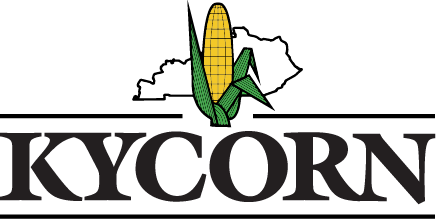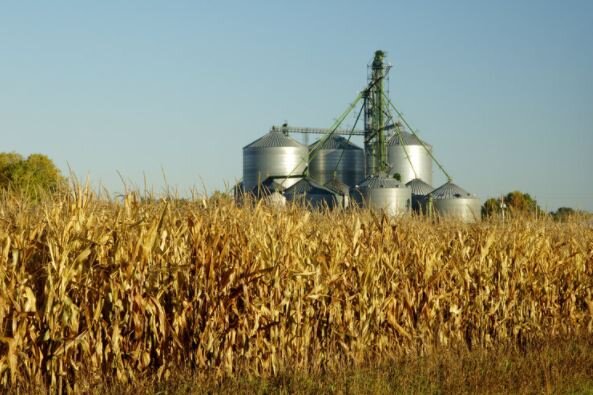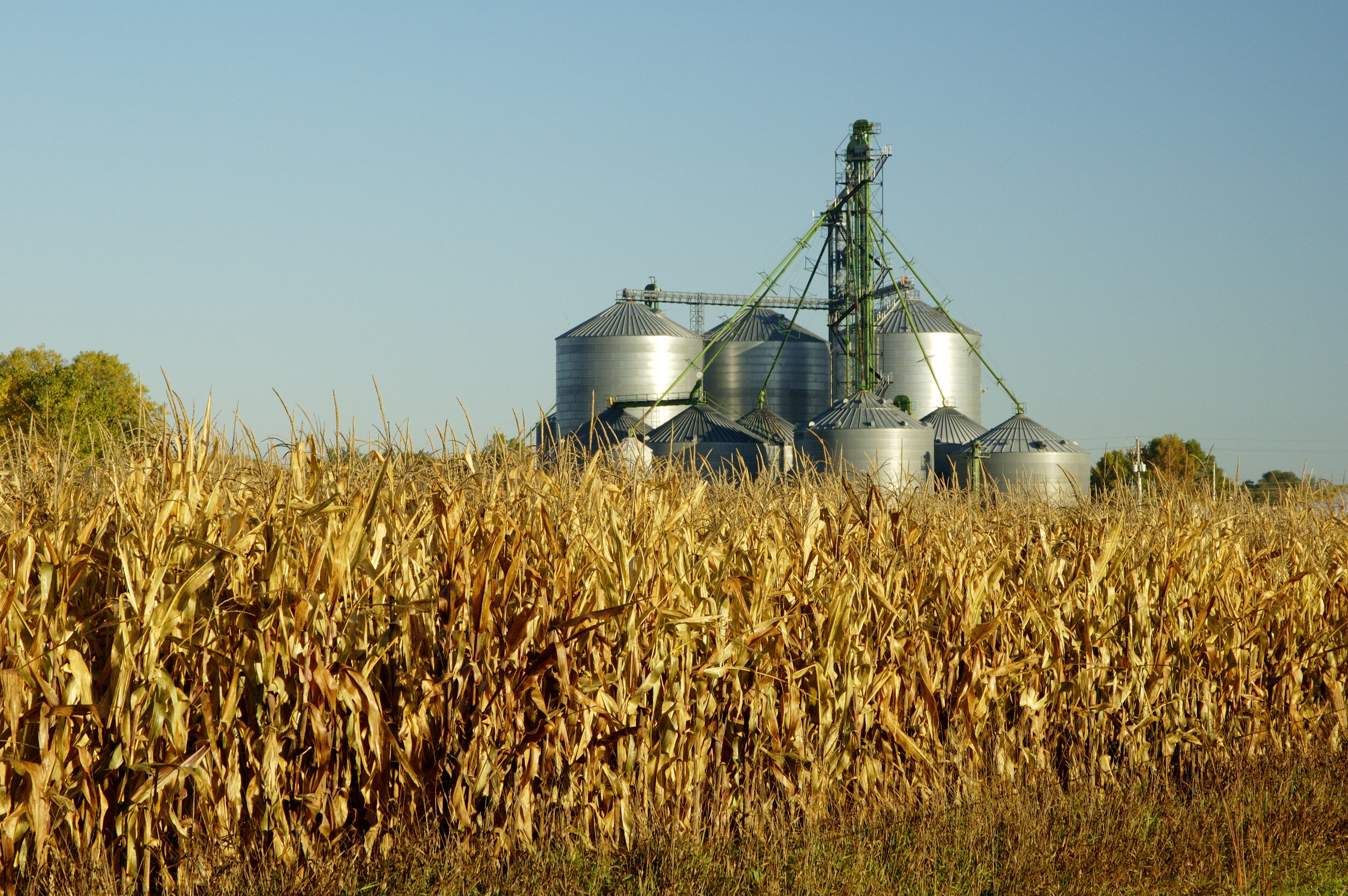But we can never take it for granted. To that end, KY Corn Growers Association works with other state corn programs and National Corn Growers Association (NCGA) to identify the most powerful demand industries and opportunities for corn grind. The KY Corn Promotion Council puts a lot of energy and effort into finding the best ways to invest farmers’ corn checkoff resources – while, in Kentucky, livestock and poultry rule the day (with exports, or delivery to the Ohio River, closely trailing), nationally there is not a clearer avenue for growth in corn utilization than through ethanol.
With getting rid of that massive national pile of corn each year in mind, the KY Corn Growers Association tackles legislative and regulatory barriers to a growing ethanol market. We work to make sure ethanol gets a level playing field as compared to other automotive fuels, liquid and otherwise. Ethanol has two major advantages for its use in passenger vehicles: 1) it has an extremely high-octane rating (about 116 octane), and 2) it scores a very low carbon intensity. If ethanol is going to get more space in the gas tank, it is going to win it with those two features. So, the KY Corn Promotion Council works with farmer checkoff dollars to fine-tune the science that can demonstrate the benefits, and the KY Corn Growers Association works to advance public policy around those two primary aspects of ethanol.
Of course, many new priorities come along with a new Presidential Administration, and it will take hard work and strong relationships to make sure that ethanol’s contribution to decarbonization of the nation’s fleet are considered as President Biden’s cabinet works together to reduce auto emissions. And with the House and Senate recently gaveling in Session 1 of the 117th Congress, we have initiatives for corn farmers and ethanol production that are developing into legislative proposals. Pro-biofuels bills have been introduced in both the House and the Senate that we support and will encourage Kentucky’s Congressional Delegation to co-sponsor.
The Adopt GREET Act has been introduced as S. 193 by Senators John Thune, SD and Amy Klobuchar, MN. Congressman Dusty Johnson, SD has introduced it in the House, but it has not been assigned a bill number yet. This bill would require EPA to adopt the Greenhouse Gases, Regulated Emissions, and Energy Use in Transportation (GREET) model as a tool that examines the life cycle impacts of vehicle technologies, fuels, products, and energy systems. Developed and supported by the Department of Energy’s Argonne National Laboratory, GREET offers a clear platform through which energy and vehicle producers, researchers, and regulators can evaluate energy and environmental effects of vehicle technologies and energy and product systems, including ethanol and biodiesel, on a level playing field.
Opportunities to increase ethanol use come from ensuring we’re using an updated and accurate measurement of the emissions reduction benefits ethanol offers. EPA’s outdated 2010 assessment of ethanol projects ethanol would result in just 21 percent fewer GHG emissions than gasoline. The most recent GREET model shows today’s average ethanol results in 41 percent fewer GHG emissions than gasoline. Regardless of what policies Congress or the Administration may consider related to energy and the environment, policymakers must rely on an updated and accurate measure of ethanol’s lifecycle emissions. Requiring EPA to adopt the GREET model would help ensure we are using the best measuring stick to demonstrate the benefits of ethanol.
The Renewable Fuel Infrastructure Investment and Market Expansion Act would codify a grant program for the deployment of renewable fuel infrastructure and direct EPA to finalize proposed rules relating to requirements for E15 fuel dispenser labeling and underground storage tank compatibility. It has been introduced as H.R. 1542 by Reps. Cindy Axne, IA and Rodney Davis, IL; and S. 227 by Senators Amy Klobuchar, MN and Joni Ernst, IA.
Specifically, S. 227 and H.R. 1542 would authorize $100 million per year over 5 years ($500 million total) to establish a USDA grant program for the installation of new fuel pump infrastructure or the conversion of existing pump infrastructure to deliver ethanol blends greater than 10 percent and biodiesel blends greater than 20 percent. Also, it would direct EPA to finalize the proposed rule entitled “E15 Fuel Dispenser Labeling and Compatibility with Underground Storage Tanks” (proposed January 19, 2021) which eliminates/revises the E15 labeling requirement and updates Underground Storage Tank (UST) compatibility requirements.
The Renewable Fuel Standard Integrity Act, H.R. 1113 by Reps. Angie Craig, MN and Dusty Johnson, SD ensures transparency and predictability for EPA’s small refinery exemption (SRE) process. The bill would require refineries to submit a petition for a RFS hardship exemption by June 1st of each year, allowing EPA to properly account for exempted gallons in the annual Renewable Volume Obligations set each November. The bill would also increase transparency by mandating the public disclosure of data surrounding SREs – a process that has previously been carried out behind closed doors with little to no congressional oversight.
And there’s more to come! We have begun to work with Congresswoman Cheri Bustos, IL to reintroduce the Next Generation Fuels Act in the 117th Congress. This bill, that was introduced in the 116th, would create a minimum threshold for octane – a priority that auto manufacturers insist is vital to producing the next generation of internal combustion engines. Ethanol is the lowest-cost octane source on the planet, and it does not carry the environmental baggage of competing octane sources, like petroleum-based aromatics. Octane is needed to help automakers increase fuel efficiency to levels that will keep them compliant with their requirements under the Corporate Average Fuel Economy (CAFE) standards.
These are just a few examples of policy efforts that we are developing on corn farmers behalf, but none of these priorities will be achieved without grassroots engagement. We hope farmers will gain a solid understanding of these technologies and how they improve corn markets. Farmer-advocates move the needle. Be ready to advocate when the time is right. Kentucky staff and volunteer farmer leaders on the Kentucky Corn Growers Association board stand ready to assist. When advocating, knowledge is power; that is where the farmer checkoff investments through the Kentucky Corn Promotion Council come into play. The Council is made up of volunteer farmers as well and decisions to invest are keenly focused on the positive impact they will make to Kentucky corn farmers’ bottom lines.


